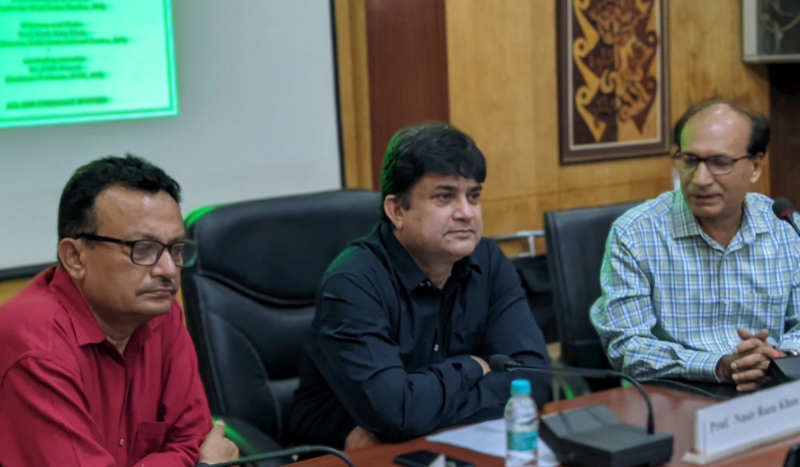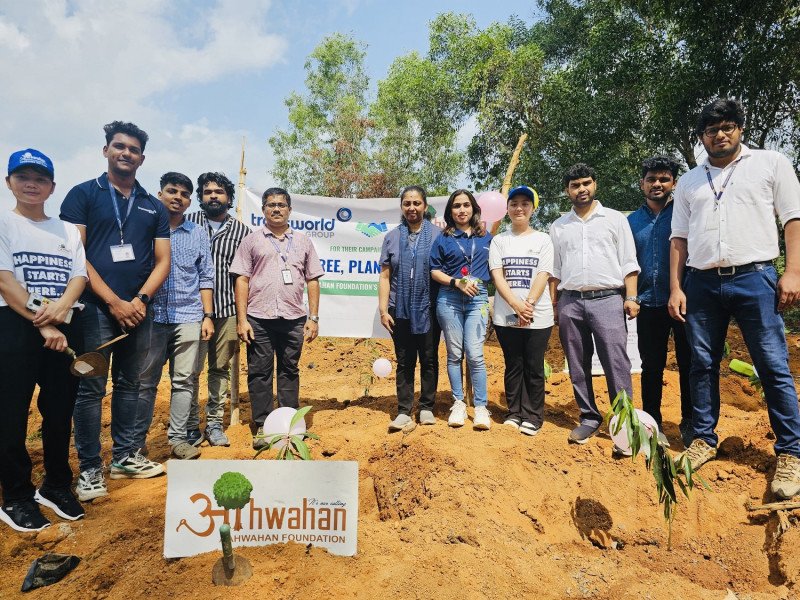New Delhi, May 6: The India Arab Cultural Centre (IACC), Jamia Millia Islamia (JMI) organized a Young Scholar Seminar on “Cross Cultural Influences between India and the Arab World” for young scholars on Monday, 6th May 2024.
Prof. Nasir Raza Khan, Director, IACC, JMI presided over the inaugural session. In his address he said that this occasion represents an endeavor to inspire young scholars, in accordance with the vision 2047 of our esteemed Prime Minister. He stressed that this kind of event is an effort to inspire the next generation of academics. The seminar provided a platform for vibrant discussions and the exchange of ideas on the deep-rooted cultural, historical, and academic ties between India and the Arab world. Esteemed professors and young scholars gathered to delve into the nuances of these connections and their impact on contemporary societies.
While speaking to the audience, Prof. Khan presented the seminar’s main purpose, which is to understand the long history of contact between India and the Arab world and highlight the facts that interact with each other in socioeconomic as well as socio-cultural and political aspects. The importance of the Arab world has increased today, not only due to their geographical proximity and historical relations, but also due to their mutual collaboration in various fields of human life such as culture, economy, knowledge, and technology. Therefore, the scholars and academics associated with the region need to be alert every time to record the happenings around the world.
Dr. Ahsan Raza, Assistant Professor, IACC, JMI, opened the seminar by reciting the Holy Quran. Prof. Anisur Rehman, Centre for West Asian Studies, JMI, gave the inaugural speech, emphasizing the importance of young minds actively participating in academic discourses. In alignment with India’s National Education Policy of 2020, he highlighted the importance of nurturing young scholars to engage deeply in understanding and contributing to cross-cultural narratives. By fostering an open and inquisitive approach, young scholars can better grasp the complexities and commonalities between India and the Arab world.
Prof. Himayun Akhtar Nazmi, who was the guest of honor for the session, gave an insightful perspective on the Indian approach to the study of the Arab world. He explained how the Indian viewpoint presents a balanced and comprehensive picture of the region without the biases of Orientalism. This nuanced approach allows for a more authentic and empathetic understanding of the cultural and historical ties between the two regions.
Dr. Aftab Ahmad, IACC, JMI delivered the concluding remark, shedding light on the enduring and dynamic cultural ties between India and the Arab world. He highlighted the importance of recognizing and celebrating these connections, as they contribute to a shared heritage and strengthen the bonds of friendship and cooperation. He encouraged the attendees to further explore and appreciate the historical and contemporary linkages between the two culturally rich regions.
There were two academic sessions that followed the inaugural session. During these sessions, fifteen experts delivered their papers on various elements of the connection between India and Arab countries, which were met with a great deal of enthusiasm.


.jpg)